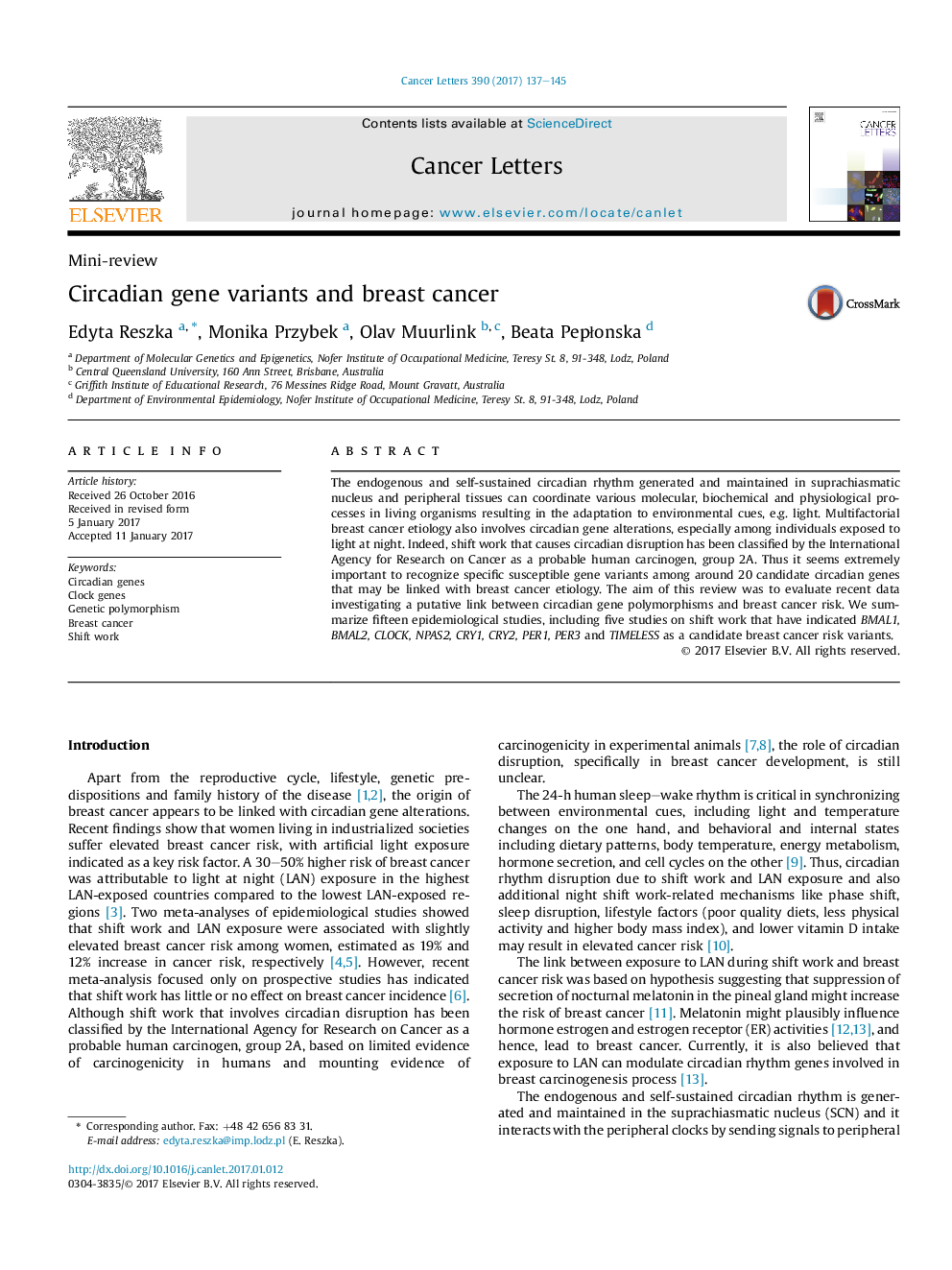| Article ID | Journal | Published Year | Pages | File Type |
|---|---|---|---|---|
| 5525395 | Cancer Letters | 2017 | 9 Pages |
â¢Epidemiological studies on circadian gene variants and breast cancer susceptibility are summarized.â¢Circadian gene variants are significantly associated with breast cancer risk.â¢Candidate breast cancer risk variants have been found in intronic and 3â²UTR regions.
The endogenous and self-sustained circadian rhythm generated and maintained in suprachiasmatic nucleus and peripheral tissues can coordinate various molecular, biochemical and physiological processes in living organisms resulting in the adaptation to environmental cues, e.g. light. Multifactorial breast cancer etiology also involves circadian gene alterations, especially among individuals exposed to light at night. Indeed, shift work that causes circadian disruption has been classified by the International Agency for Research on Cancer as a probable human carcinogen, group 2A. Thus it seems extremely important to recognize specific susceptible gene variants among around 20 candidate circadian genes that may be linked with breast cancer etiology. The aim of this review was to evaluate recent data investigating a putative link between circadian gene polymorphisms and breast cancer risk. We summarize fifteen epidemiological studies, including five studies on shift work that have indicated BMAL1, BMAL2, CLOCK, NPAS2, CRY1, CRY2, PER1, PER3 and TIMELESS as a candidate breast cancer risk variants.
